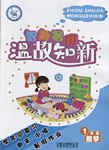题目内容
BEIJING - TV viewers may no longer be able to hear English abbreviations(缩写), like "NBA" (National Basketball Association), from mainland broadcasters.
China Central Television (CCTV) and Beijing Television (BTV) confirmed to China Daily on Tuesday that they had received a notice from a related government department, asking them to avoid using certain English abbreviations in Chinese programs.
The channels, however, did not reveal exactly how many English abbreviations are listed in the notice.
The Hangzhou-based Today Morning Express reported on Tuesday that a number of provincial television stations have also received the notice.
Broadcasters and journalists have been asked to provide Chinese explanations for unavoidable English abbreviations in their programs, the report said.
The notice not only limits the use of English abbreviations in sports news, but also in economic and political news. Abbreviations such as "GDP" (gross domestic product), "WTO" (World Trade Organization) and "CPI" (consumer price index) will also be substituted with their Chinese pronunciations, it said.
The country's top watchdog on television and radio, the State Administration of Radio, Film and Television, refused to comment.
The move comes after a growing number of national legislators and political advisors called for preventive measures to preserve the purity of the Chinese language.
"If we don't pay attention and don't take measures to stop mixing Chinese with English, the Chinese language won't remain pure in a couple of years," said Huang Youyi, editor-in-chief of the China International Publishing Group and secretary-general of the Translators' Association of China.
"In the long run, Chinese will lose its role as an independent linguistic system for passing on information and expressing human feelings," he told China Daily in an earlier interview.
According to his proposal, all documents and speeches of top government officials should be written in pure Chinese, without the use of English abbreviations such as GDP, WTO or CPI.
His proposal also noted that a law or regulation should be introduced to serve as a guideline for the use of foreign words in domestic publications, and that a national translation committee should be set up to translate foreign names and technical terms, which can then be published on a website.
The restricted use of English abbreviations on Chinese television programs has provoked a debate among scholars.
"It makes no sense to introduce a regulation to prevent the use of English in the Chinese language in the face of globalization," Liu Yaoying, a professor at the Communication University of China, said on Tuesday. "It is cultural conservatism."
"If Western countries can accept some Chinglish words, why can't the Chinese language be mixed with English?"
The Singaporean newspaper New Straits Times and London's Daily Telegraph both used Chinese Pinyin Lianghui in their reports about the annual meeting of the National People's Congress and the Chinese People's Political Consultative Conference, rather than using English to paraphrase the proceedings.
Governments of some Western countries have also attempted to preserve the purity of their languages.
For example, France is a country known for its linguistic pride. Its government outlaws advertising in English and mandates a 40 percent quota of French songs on the radio, according to a Christian Science Monitor report.
56. Who issued the ban on English abbreviation?
A. China Central Television. B. Beijing Television.
C. an authority department. D. a number of national political advisors.
57. The purpose for which was the ban proposed was __________.
A. to preserve the purity of the Chinese language
B. to improve our international communication
C. to standardize the functioning of radio and TV stations
D. to prevent foreign languages interfere with teach of Chinese in schools
58. By calling the regulation “cultural conservatism”, Mr Liu Yaoying meant to show his _________ for the move.
A. approval B. criticism C. appreciation D. disappointment
59. The most likely opinion of the writer of this news report tends to be _________ towards the newly introduced regulation.
A. critical B. positive C. negative D. neutral
CABD

 智趣暑假温故知新系列答案
智趣暑假温故知新系列答案Nine 1700yearold brick tombs have been discovered in northwest China’s Xinjiang. Experts say that they can 1 valuable clues for the research of exchanges(交换;交流) between the central Chinese government at that time and ___2 Western Regions.
It is the 3 time ancient tombs with typical characteristics of China's main Han nationality have been found in the Uygur ethnic region(自治区).
main Han nationality have been found in the Uygur ethnic region(自治区).
4 from Beijing,Shanxi and Xinjiang concluded that the tombs were ___5___ between the middle and late third century and fourth century.
The tombs were unearthed during the 6 of a road earlier this year in Kuqa county,740 km  from Xinjiang's capital Urumqi and part of the 7 Qiuci State. Qiuci State,which 8 between the second century BC and 860 AD,was one of the 36 states in the Western Regions.
from Xinjiang's capital Urumqi and part of the 7 Qiuci State. Qiuci State,which 8 between the second century BC and 860 AD,was one of the 36 states in the Western Regions.
The tombs would help archaeologists with research into the political,economic and cultural 9 between the Central Plains government and states in the west,and on the cultural 10 of the Central Plains on the Western Regions.
Archaeologists from the Xinjiang institute have dug nine tombs since August 22,___11 bodies of more than 30 people,some ancient 12 and more than 60 pottery(陶器)jars. It is thought there are another three tombs to be 13 .
The people buried in the tombs were 14 either people from the western regions deeply influenced by the Han culture or the Han residents(居民)in the ___15 .
| 【小题1】 |
|
|
|
|
|
|
|
|
|
|
|
|
|
|
|